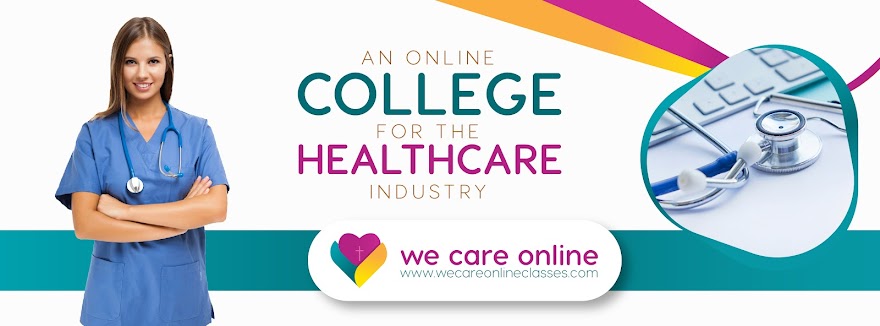Laughter
is your natural defense mechanism. It's a prescription from your “Humor
Being” to cure the chaos that attacks you from day to day.
To describe what a Humor Being is, I have to first define what a sense of humor is. The dictionary says the word
sense means “perception or awareness; and correct reasoning; or sound judgment.” The word
humor
means “turn of mind; to sooth temper or mood; or the mental quality
that produces absurd or joyful ideas.” So we can say that a
sense of humor
is to be aware that you have a mental quality to turn your mind in an
unusual way, or a need to produce joyful or absurd ideas that can sooth
your very being.
Many truly
successful and happy people
had to overcome adversity of some kind. Inventors, discoverers,
entrepreneurs, actors, athletes, artists and great minds of all kinds
had to face major challenges and defy insurmountable odds on their
journey toward success. But they also had an ongoing optimism to move
forward. Each of them had an awareness, a perception, to shift their
moods to produce joyful ideas and an ability to soothe their very being
by using correct reasoning and sound judgment. This awareness or
perception is by definition a sense of humor. The initiative and
proficiency by which to utilize it, however, comes from what I call our
Humor Being.
Your Humor Being is one facet of your higher self.
- See more at: http://www.success.com/blog/use-your-humor-being-to-be-a-better-human-being#sthash.KA9kA522.dpuf
Laughter
is your natural defense mechanism. It's a prescription from your “Humor
Being” to cure the chaos that attacks you from day to day.
To describe what a Humor Being is, I have to first define what a sense of humor is. The dictionary says the word
sense means “perception or awareness; and correct reasoning; or sound judgment.” The word
humor
means “turn of mind; to sooth temper or mood; or the mental quality
that produces absurd or joyful ideas.” So we can say that a
sense of humor
is to be aware that you have a mental quality to turn your mind in an
unusual way, or a need to produce joyful or absurd ideas that can sooth
your very being.
Many truly
successful and happy people
had to overcome adversity of some kind. Inventors, discoverers,
entrepreneurs, actors, athletes, artists and great minds of all kinds
had to face major challenges and defy insurmountable odds on their
journey toward success. But they also had an ongoing optimism to move
forward. Each of them had an awareness, a perception, to shift their
moods to produce joyful ideas and an ability to soothe their very being
by using correct reasoning and sound judgment. This awareness or
perception is by definition a sense of humor. The initiative and
proficiency by which to utilize it, however, comes from what I call our
Humor Being.
Your Humor Being is one facet of your higher self.
- See more at: http://www.success.com/blog/use-your-humor-being-to-be-a-better-human-being#sthash.KA9kA522.dpuf
Laughter
is your natural defense mechanism. It's a prescription from your “Humor
Being” to cure the chaos that attacks you from day to day.
To describe what a Humor Being is, I have to first define what a sense of humor is. The dictionary says the word
sense means “perception or awareness; and correct reasoning; or sound judgment.” The word
humor
means “turn of mind; to sooth temper or mood; or the mental quality
that produces absurd or joyful ideas.” So we can say that a
sense of humor
is to be aware that you have a mental quality to turn your mind in an
unusual way, or a need to produce joyful or absurd ideas that can sooth
your very being.
Many truly
successful and happy people
had to overcome adversity of some kind. Inventors, discoverers,
entrepreneurs, actors, athletes, artists and great minds of all kinds
had to face major challenges and defy insurmountable odds on their
journey toward success. But they also had an ongoing optimism to move
forward. Each of them had an awareness, a perception, to shift their
moods to produce joyful ideas and an ability to soothe their very being
by using correct reasoning and sound judgment. This awareness or
perception is by definition a sense of humor. The initiative and
proficiency by which to utilize it, however, comes from what I call our
Humor Being.
Your Humor Being is one facet of your higher self.
- See more at: http://www.success.com/blog/use-your-humor-being-to-be-a-better-human-being#sthash.KA9kA522.dpuf
Laughter
is your natural defense mechanism. It's a prescription from your “Humor
Being” to cure the chaos that attacks you from day to day.
To describe what a Humor Being is, I have to first define what a sense of humor is. The dictionary says the word
sense means “perception or awareness; and correct reasoning; or sound judgment.” The word
humor
means “turn of mind; to sooth temper or mood; or the mental quality
that produces absurd or joyful ideas.” So we can say that a
sense of humor
is to be aware that you have a mental quality to turn your mind in an
unusual way, or a need to produce joyful or absurd ideas that can sooth
your very being.
Many truly
successful and happy people
had to overcome adversity of some kind. Inventors, discoverers,
entrepreneurs, actors, athletes, artists and great minds of all kinds
had to face major challenges and defy insurmountable odds on their
journey toward success. But they also had an ongoing optimism to move
forward. Each of them had an awareness, a perception, to shift their
moods to produce joyful ideas and an ability to soothe their very being
by using correct reasoning and sound judgment. This awareness or
perception is by definition a sense of humor. The initiative and
proficiency by which to utilize it, however, comes from what I call our
Humor Being.
Your Humor Being is one facet of your higher self.
- See more at: http://www.success.com/blog/use-your-humor-being-to-be-a-better-human-being#sthash.KA9kA522.dpuf
Laughter
is your natural defense mechanism. It's a prescription from your “Humor
Being” to cure the chaos that attacks you from day to day.
To describe what a Humor Being is, I have to first define what a sense of humor is. The dictionary says the word
sense means “perception or awareness; and correct reasoning; or sound judgment.” The word
humor
means “turn of mind; to sooth temper or mood; or the mental quality
that produces absurd or joyful ideas.” So we can say that a
sense of humor
is to be aware that you have a mental quality to turn your mind in an
unusual way, or a need to produce joyful or absurd ideas that can sooth
your very being.
Many truly
successful and happy people
had to overcome adversity of some kind. Inventors, discoverers,
entrepreneurs, actors, athletes, artists and great minds of all kinds
had to face major challenges and defy insurmountable odds on their
journey toward success. But they also had an ongoing optimism to move
forward. Each of them had an awareness, a perception, to shift their
moods to produce joyful ideas and an ability to soothe their very being
by using correct reasoning and sound judgment. This awareness or
perception is by definition a sense of humor. The initiative and
proficiency by which to utilize it, however, comes from what I call our
Humor Being.
Your Humor Being is one facet of your higher self.
- See more at: http://www.success.com/blog/use-your-humor-being-to-be-a-better-human-being#sthash.KA9kA522.dpuf

Laughter is your natural defense mechanism. It's a prescription from your “
Humor Being” to cure the chaos that attacks you from day to day.
To describe what a Humor Being is, I have to first define what a sense of humor is. The dictionary says the word sense means “perception or awareness; and correct reasoning; or sound judgment.” The word humor means “turn of mind; to sooth temper or mood; or the mental quality that produces absurd or joyful ideas.” So we can say that a sense of humor is to be aware that you have a mental quality to turn your mind in an unusual way, or a need to produce joyful or absurd ideas that can sooth your very being.
Many truly successful and happy people had to overcome adversity of some kind. Inventors, discoverers, entrepreneurs, actors, athletes, artists and great minds of all kinds had to face major challenges and defy insurmountable odds on their journey toward success. But they also had an ongoing optimism to move forward. Each of them had an awareness, a perception, to shift their moods to produce joyful ideas and an ability to soothe their very being by using correct reasoning and sound judgment. This awareness or perception is by definition a sense of humor. The initiative and proficiency by which to utilize it, however, comes from what I call our Humor Being.
Your Humor Being is one facet of your higher self.
- See more at:
http://www.success.com/blog/use-your-humor-being-to-be-a-better-human-being#sthash.KA9kA522.dpuf
Laughter
is your natural defense mechanism. It's a prescription from your “Humor
Being” to cure the chaos that attacks you from day to day.
To describe what a Humor Being is, I have to first define what a sense of humor is. The dictionary says the word
sense means “perception or awareness; and correct reasoning; or sound judgment.” The word
humor
means “turn of mind; to sooth temper or mood; or the mental quality
that produces absurd or joyful ideas.” So we can say that a
sense of humor
is to be aware that you have a mental quality to turn your mind in an
unusual way, or a need to produce joyful or absurd ideas that can sooth
your very being.
Many truly
successful and happy people
had to overcome adversity of some kind. Inventors, discoverers,
entrepreneurs, actors, athletes, artists and great minds of all kinds
had to face major challenges and defy insurmountable odds on their
journey toward success. But they also had an ongoing optimism to move
forward. Each of them had an awareness, a perception, to shift their
moods to produce joyful ideas and an ability to soothe their very being
by using correct reasoning and sound judgment. This awareness or
perception is by definition a sense of humor. The initiative and
proficiency by which to utilize it, however, comes from what I call our
Humor Being.
Your Humor Being is one facet of your higher self.
- See more at: http://www.success.com/blog/use-your-humor-being-to-be-a-better-human-being#sthash.KA9kA522.dpuf




















